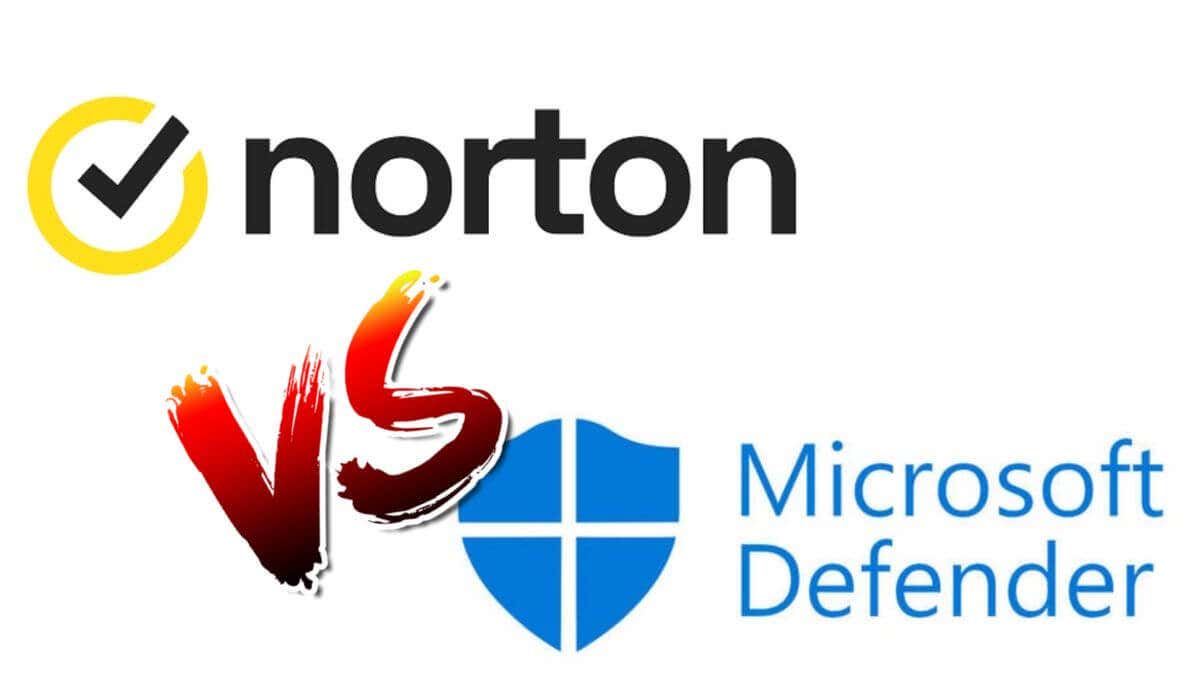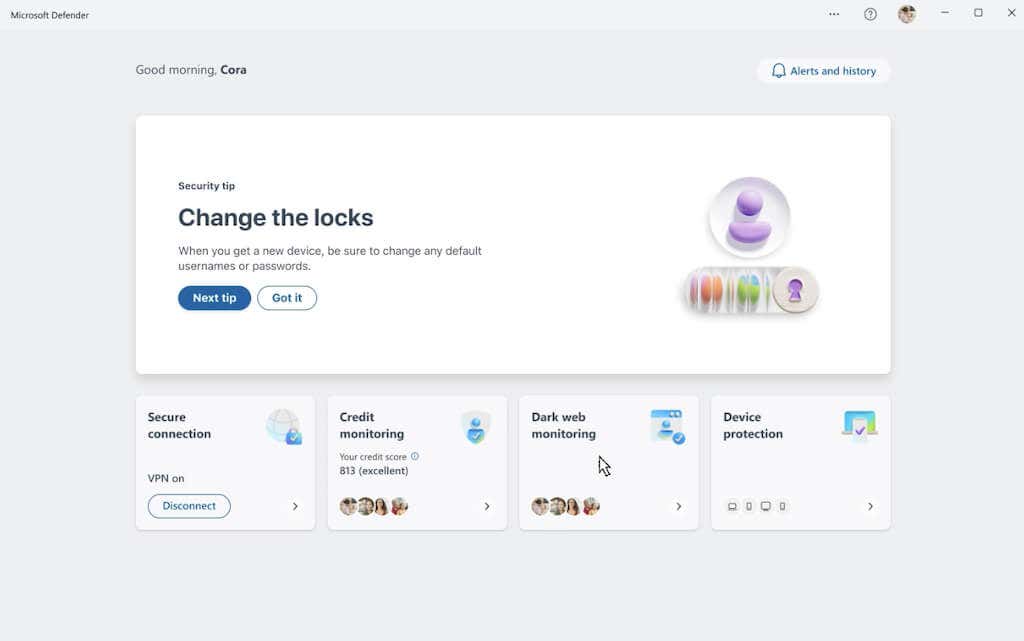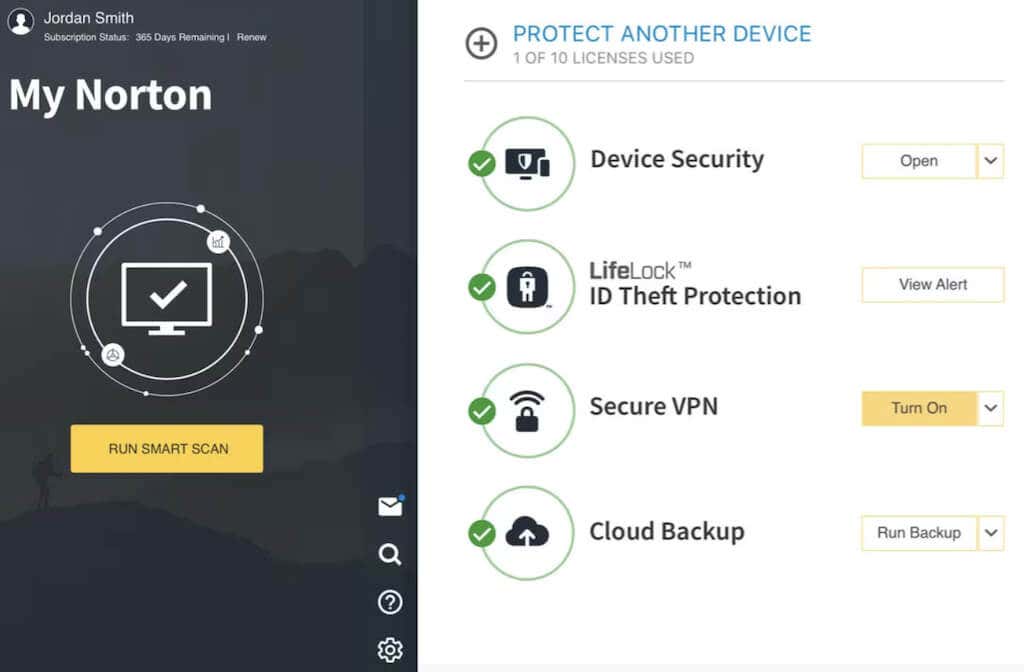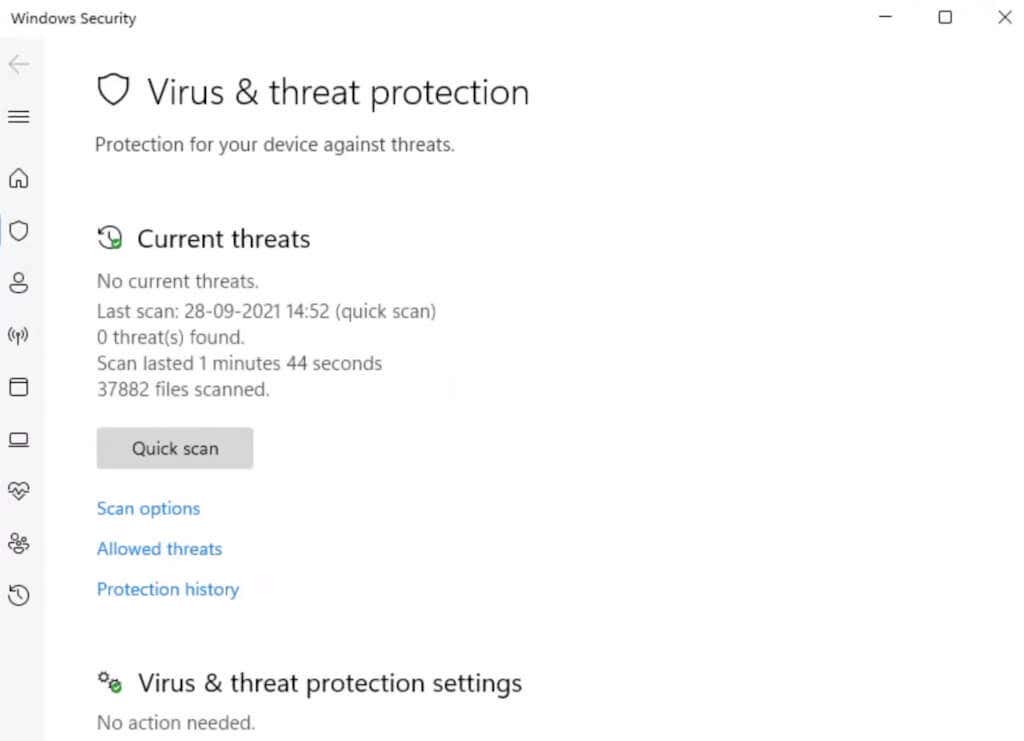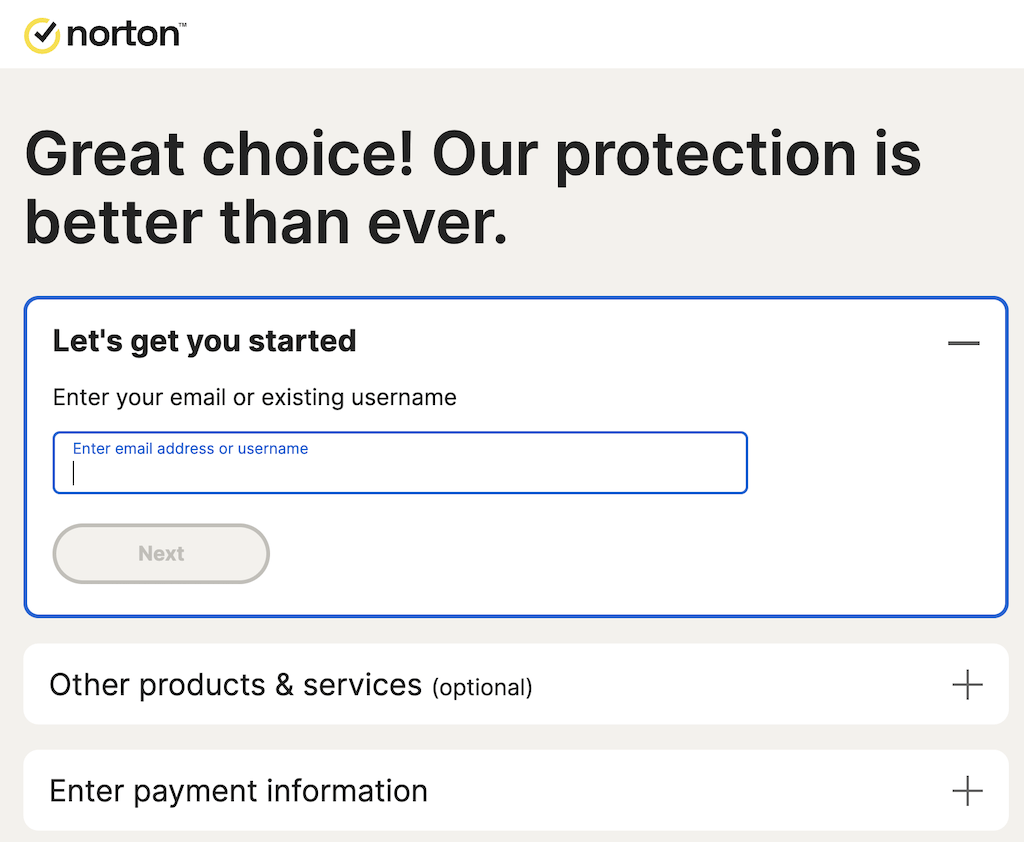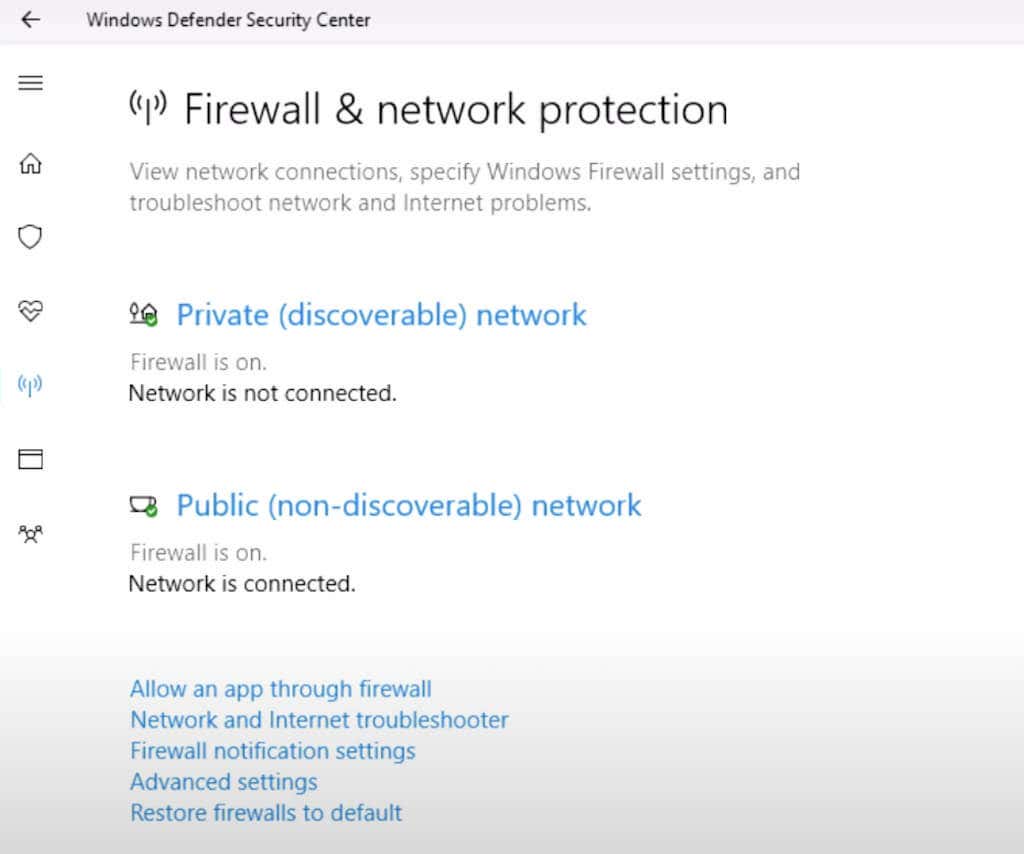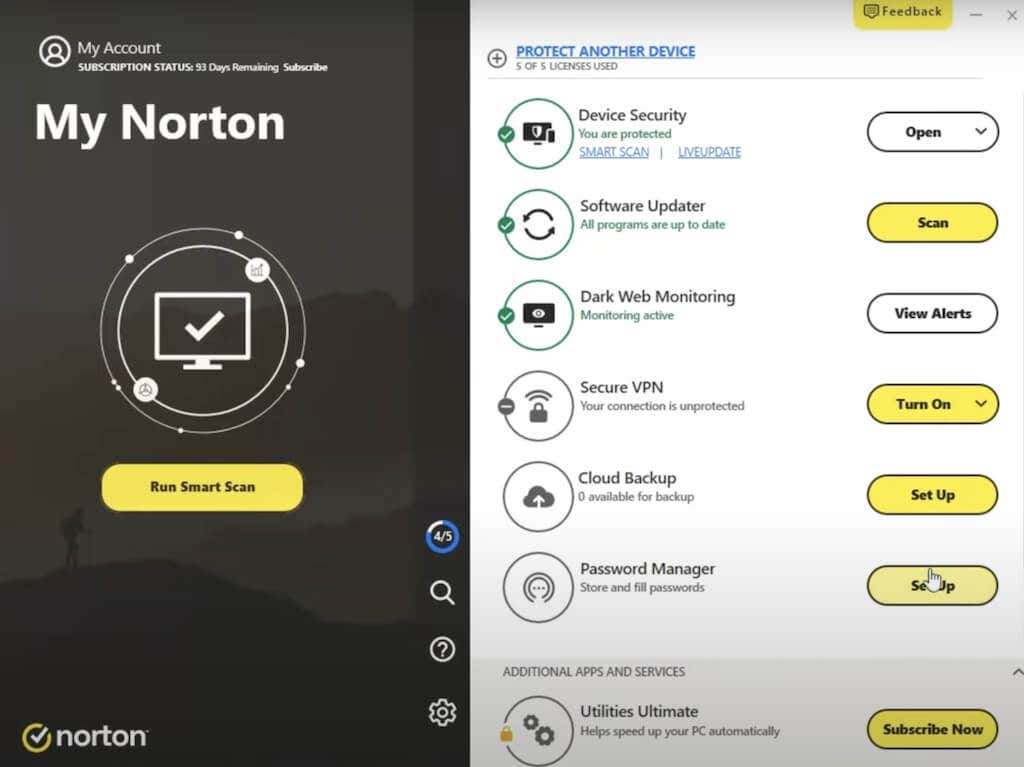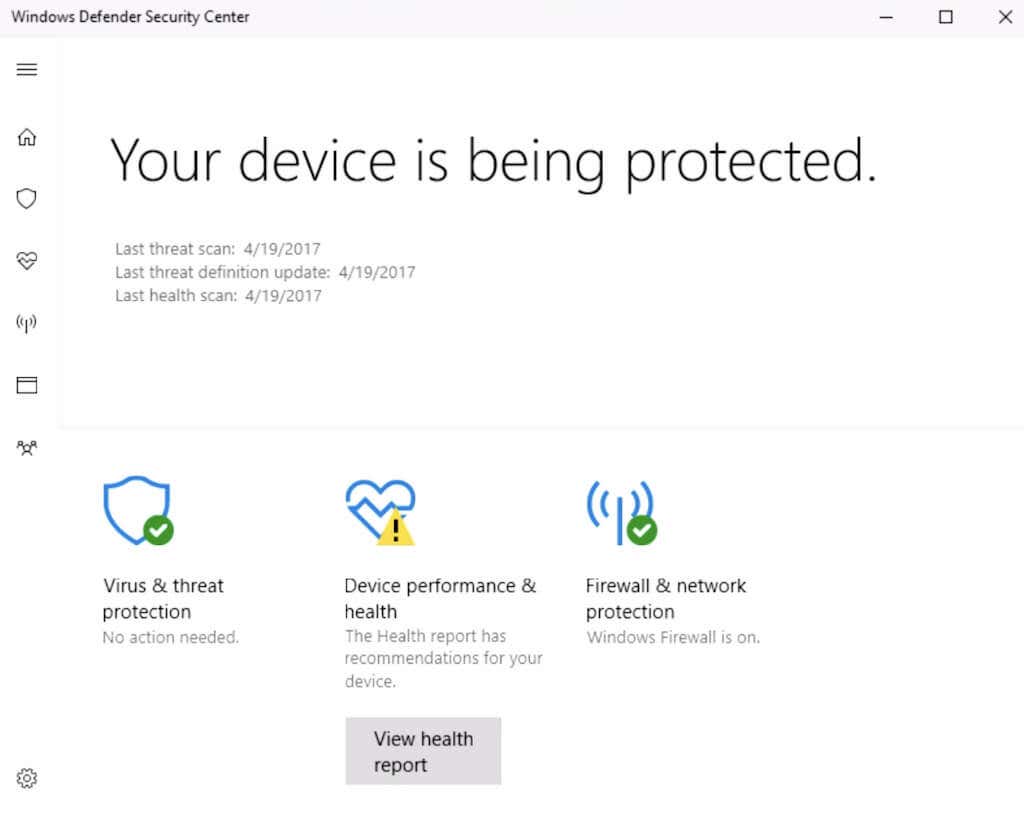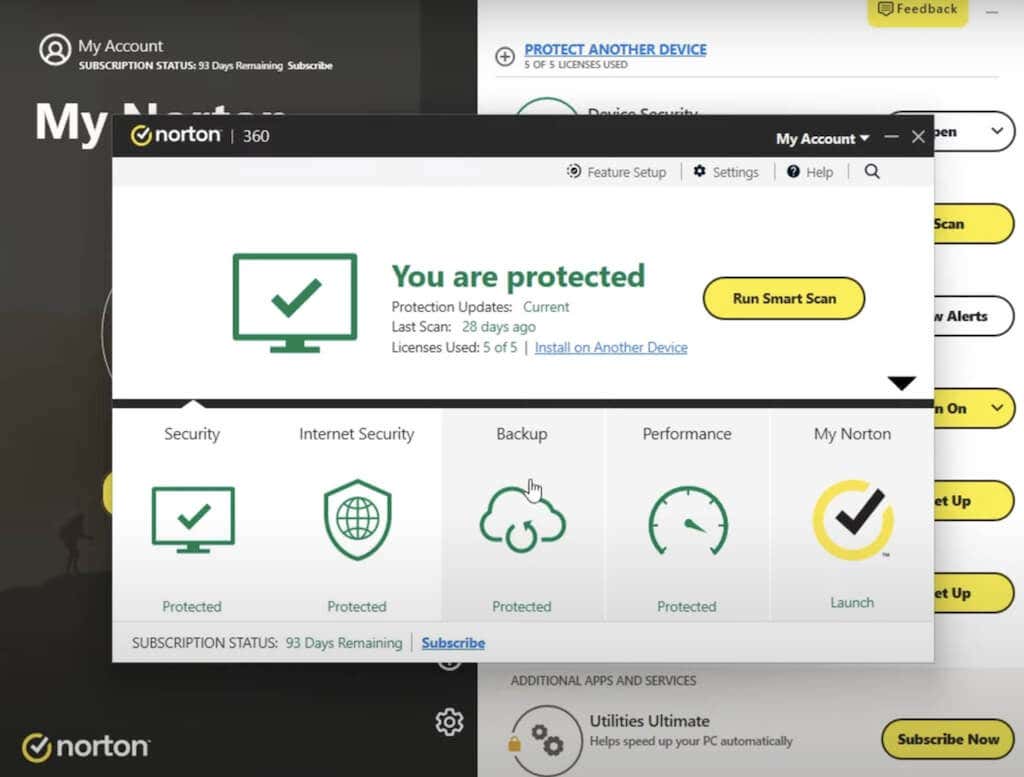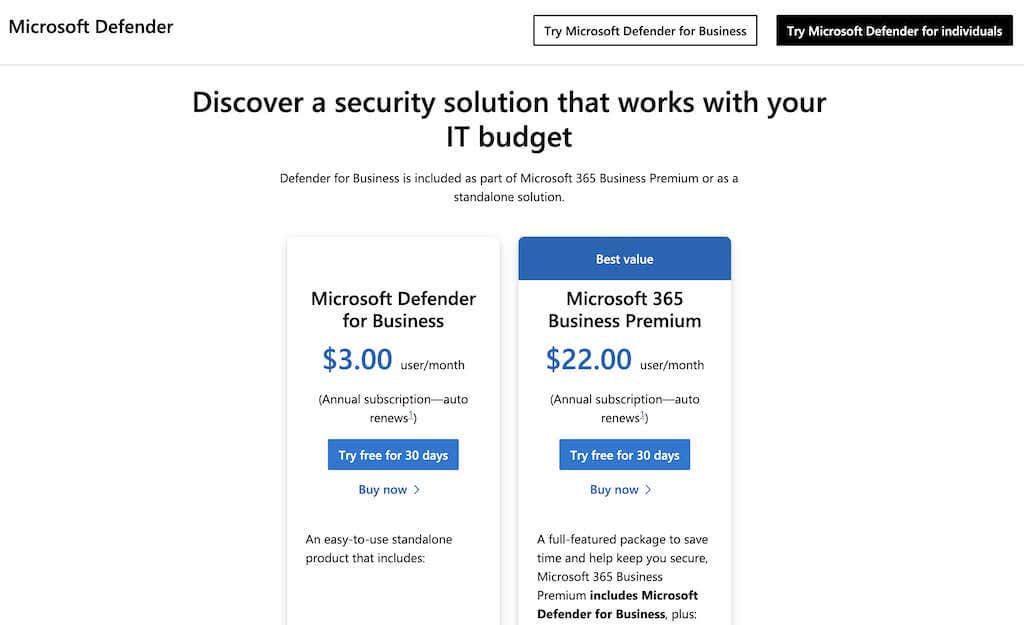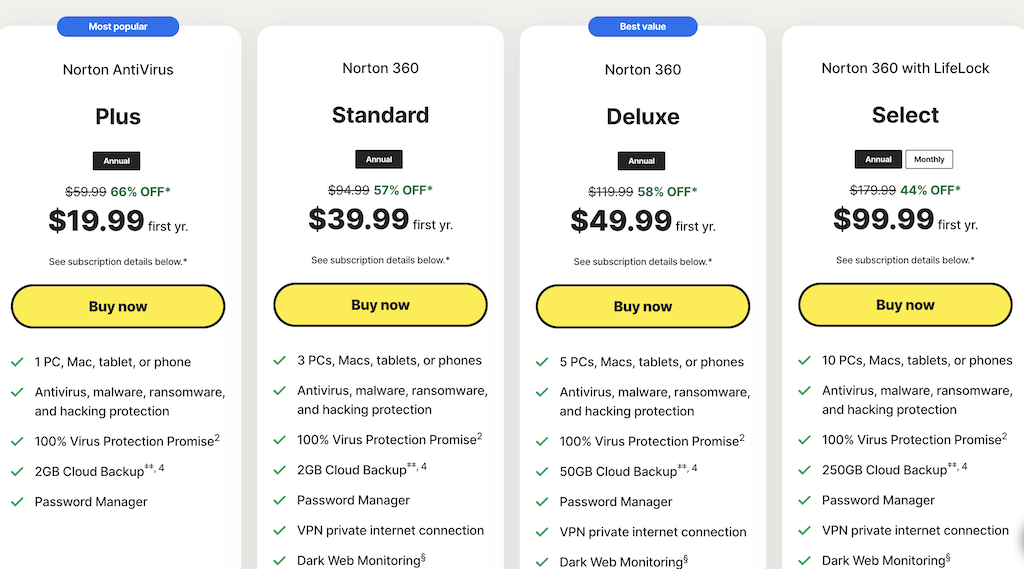Choosing the right antivirus software is important for securing your data and personal information against outside threats. Norton and Microsoft Defender are both solid options when it comes to security software.
In this article, we’ll have a look at both antivirus programs and compare them against a set of criteria. Let’s find out which antivirus program offers the best threat protection for Windows.
Related: We’ve also got a detailed comparison of Bitdefender vs Microsoft Defender.
Norton vs. Microsoft Defender: First Impressions
Norton and Microsoft Defender (also known as Windows Defender) are two prominent names in the antivirus realm, each with distinct offerings and features.
Microsoft Defender, an integral part of the Windows ecosystem, delivers basic yet efficient protection against security threats. It operates seamlessly in the background, guarding systems with real-time scanning, Firewall protection, and SmartScreen features. While adequate for casual users, those seeking more intricate control might find third-party antivirus software more suitable due to its comparatively limited customization options.
On the other hand, Norton stands as a reputable cybersecurity solution providing a diverse range of products, including Norton AntiVirus and Norton 360, offering extensive defense mechanisms against various online threats.
Norton’s antivirus suite comprises real-time threat detection, firewall protection, and malware removal tools, coupled with security features. Known for its adaptability against evolving cyber threats and user privacy commitments, Norton emerged from its antivirus origins in the early ’90s to evolve into a comprehensive cybersecurity platform bolstered by strategic acquisitions such as Avast Antivirus, AVG, and Avira.
For individuals or businesses seeking comprehensive and adaptive digital protection, Norton is also a reliable choice that ensures robust defense against viruses, malware, and privacy breaches.
Functionality & Features
Both antivirus solutions offer robust protection against malware while incorporating additional tools to enhance device security and privacy.
- VPN – Norton
- Smart Firewall – Norton, Microsoft Defender
- Manual and scheduled scans – Norton, Microsoft Defender
- Phishing protection – Norton, Microsoft Defender
- Ransomware protection – Norton, Microsoft Defender
- Webcam protection – Norton
- Parental controls – Norton
- Password manager – Norton
- Identity theft protection – Norton, Microsoft Defender
- Device optimization tools – Norton
- Cloud storage – Norton, Microsoft Defender
Norton 360 comes with an extensive suite of features that go beyond basic antivirus functionality. Among its exclusive offerings are the Secure VPN, Password Manager, and PC SafeCam. The Secure VPN ensures online privacy by assigning a new IP address, while the Password Manager securely stores and generates passwords. Additionally, Norton’s PC SafeCam feature safeguards you against webcam hijacking attempts, reinforcing device security against potential threats.
Microsoft Defender, while competent in basic antivirus and antimalware protection, offers distinct features such as App and Browser Control, Windows Hello, and OneDrive Backup. App and Browser Control isolates browsing sessions to shield devices from potential malware harm, while Windows Hello allows the use of facial recognition and fingerprint biometrics for authentication. Moreover, Microsoft Defender integrates with OneDrive to facilitate backup services for essential files, albeit with a 5GB limitation in the free version.
Although Microsoft Defender provides supplementary protective measures and alerts for enhanced security, Norton stands out with its comprehensive suite of features, including a VPN, password manager, and webcam protection, offering a broader range of tools for users seeking advanced security measures. Therefore, in terms of functionality and feature-rich offerings, Norton emerges as the preferred choice, providing a more comprehensive and extensive security suite compared to Microsoft Defender.
Installation and Sign Up
When it comes to the installation and sign-up processes for Norton and Microsoft Defender, the two antivirus solutions offer different experiences.
Microsoft Defender is seamlessly integrated into Windows, making it hassle-free and straightforward. If you’re using a Windows PC, there’s no need for sign-ups or additional installations – the app is already installed and active on your computer. The antivirus software automatically activates once the operating system is enabled. You can check the status of Microsoft Defender Antivirus using the Windows Security app, which you’ll find through the Start menu.
Norton provides a simple sign-up process requiring an email address and password setup, with options for convenient payment methods like Visa and PayPal.
After signing up, downloading and installing Norton’s software is quick and effortless, typically taking about five minutes. You can choose a plan, sign up, download the setup from the web portal, install the software, and begin securing your system using Norton’s features like scans and firewall.
While Microsoft Defender comes pre-installed with Windows, offering automatic activation, Norton requires a straightforward sign-up process and software installation. Both procedures are user-friendly, but Norton involves a more manual process of signing up, downloading, and installing the software compared to Microsoft Defender’s seamless integration.
Interface & Ease of Use
Both Microsoft Defender and Norton 360 offer straightforward experiences but with some distinctions.
Microsoft Defender, as built into the Windows operating system, is seamlessly integrated into Windows Settings. It’s easily accessible and navigable within the update and security section of the Windows settings dashboard.
The interface is color-coded and provides an intuitive overview of key security elements like virus and threat protection, firewall, and network protection. While it doesn’t have as many features as Norton, it offers a user-friendly interface that allows users to handle essential security functions easily.
On the other hand, Norton 360 showcases an intuitive dashboard with a distinct color scheme of black, white, and yellow. Its graphical user interface (GUI) is designed for both beginners and advanced users, offering a variety of features while maintaining simplicity.
Norton’s dashboard is neatly organized into tabs, including security, internet security, backup options, and performance enhancements. Each tab provides detailed options for scans, browser protection, cloud backup settings, and system optimization, making it easy for users to access and control their security preferences.
While both interfaces offer ease of use, Norton provides a more comprehensive set of features with an intuitive interface, making it the preferred choice for users seeking advanced functionalities within a user-friendly design.
System Performance
Neither of these virus protection apps has a substantial effect on system performance. Throughout the testing, we encountered no sluggishness while using either Norton or Microsoft Defender. Our assessment involved running both apps in the background while performing various tasks such as browsing web pages, playing video games, and transferring files.
During full scans, both antivirus programs showed slightly higher CPU, RAM, and disk usage. However, these levels were not significant enough to slow down your browsing or streaming.
Effectiveness Against Malware
Norton and Microsoft Defender offer strong defenses against real-time threats, yet Norton shines in countering 0-day malware with a perfect 100% detection rate. Microsoft Defender holds an impressive 99% detection rate against live threats but faces limitations in detecting malware concealed within zip files.
I did my own tests as well as used the benchmarks available from AV-Comparatives and AV-Test. Norton exhibited exceptional efficiency by blocking all attempted malware downloads, including those within zip files. Microsoft Defender, while effective in halting most malware downloads, fell short in detecting malware hidden in zip files.
Both security applications boast dependable malware protection to shield users from malicious websites during web surfing. Norton’s web protection extends across multiple browsers, such as Chrome, Microsoft Edge, Firefox, and Safari. Norton further impresses with its Safe Search extension, identifying and flagging unsafe links for user awareness.
Microsoft Defender also offers good enough web protection, yet its coverage is restricted to Chrome and Edge web browsers. During testing, it effectively prevented access to unsafe websites and provided users with error messages warning about potential risks if proceeding.
In summary, Norton delivers consistent and robust real-time protection against various threats like malware, spyware, and hacker attacks, demonstrating superiority in detecting hidden malware within zip files. Additionally, Norton’s comprehensive web protection supporting multiple browsers marks it as a preferable choice over Microsoft Defender in this regard.
Customer Support
When it comes to customer support, Norton takes the lead, offering round-the-clock assistance every day of the year. Their range of support options varies across different Norton software packages, but generally includes live chat and phone support for urgent inquiries.
Additionally, they provide an extensive knowledge base and community forum for people seeking solutions to common queries. For those inclined towards social interaction, Norton also engages users on platforms like Twitter and Facebook.
The customer support that Microsoft Defender offers is rather limited. Users can post queries on Microsoft’s community forum or access the website FAQs. However, it appears that Microsoft reserves more robust support features for paying customers of Microsoft Defender for Endpoint.
Pricing and Plans
Norton offers four subscription plans to choose from, while Microsoft Defender is completely free and doesn’t offer an option for you to upgrade to a paid plan to enjoy extra features. So if you’re looking for a free antivirus, opt for the Microsoft Defender.
Microsoft offers another package to enterprise customers called Microsoft Defender for Endpoint or Microsoft Defender for Business. This security suite helps to secure Windows, macOS, Linux, Android, and iOS devices against sophisticated threats. This protection package is mostly for big businesses and large-scale networks.
Norton security offers four consumer subscription tiers with varying features. The Antivirus Plus plan, usually priced at $59.99, which drops to $19.99 for the first year with an annual plan. It covers essentials like 2 GB cloud storage, malware protection, and a password manager.
Moving up, Norton 360 Standard, typically $94.99, is discounted to $39.99 for the first year. It includes Antivirus Plus features and adds more devices, a VPN, and dark web monitoring.
Then there’s Norton 360 Deluxe, typically $119.99, which is discounted to $49.99 for the first year. It adds more devices, 50GB of cloud backup, privacy monitor and parental controls.
Stepping further, Norton 360 with LifeLock Select, usually $179.99, slashes down to $99.48 for the first year. This plan expands with 250 GB cloud storage and LifeLock identity theft protection.
All Norton plans have a 60-day money-back guarantee for user satisfaction. In contrast, Microsoft Defender, a free option, is available only on Windows devices, while Norton 360 can be installed on Windows, Mac OS, Android, and iOS devices.
Overall, if you’re settled on not paying for your antivirus, Microsoft Defender is the better option for its free integration with Windows 10 and Windows 11. If you’re looking for software with more extensive features, then take a closer look at what Norton offers.
Norton vs Microsoft Defender: Which Antivirus is Best for Windows?
In the end, Norton emerges as a top contender in this battle, offering comprehensive protection across all plans, and catering to a wide spectrum of user requirements with a great number of features.
At the same time, Microsoft Defender remains a strong free option for Windows users. Even though it lacks the extensive features and cross-platform versatility of Norton 360.
If you’re looking at other antivirus products like Bitdefender, McAfee, Malwarebytes, or ESET, Norton still stands out as the best antivirus choice for Windows users. Norton offers different plans with lots of features, making it great for people who want strong protection on various devices.
Related Posts
Anya is a freelance technology writer. Originally from Russia, she is currently a full-time Remote Worker and Digital Nomad. With a background in Journalism, Language Studies, and Technical Translation, Anya couldn’t imagine her life and work without using modern technology on a daily basis. Always looking out for new ways to make her life and location-independent lifestyle easier, she hopes to share her experiences as a tech- and internet-addict through her writing. Read Anya’s Full Bio
